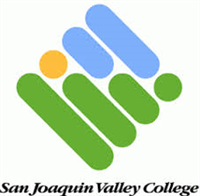What do they do?
Assess, treat, and care for patients with breathing disorders. Assume primary responsibility for all respiratory care modalities, including the supervision of respiratory therapy technicians. Initiate and conduct therapeutic procedures; maintain patient records; and select, assemble, check, and operate equipment.
Also known as:
Cardiopulmonary Rehabilitation Respiratory Therapist, Certified Respiratory Therapist (CRT), Registered Respiratory Therapist (RRT), Respiratory Care Practitioner (RCP), Respiratory Therapist (RT), Staff Respiratory Therapist, Staff Therapist
-
1.7%
Change
Ranks #62 in job growth rate340Job Openings
Ranks #9 in net job growth
Looking for colleges that offer a specific major? Use the College Match Tool to find your best-matched schools and discover your estimated Net Price!
- Associate's degree (53%)
- Bachelor's degree (29%)
- Some college, no degree (11%)
- Master's degree (3%)
- High school diploma equivalent (2%)
- Doctorate or Professional Degree (1%)
- Less than high school diploma (1%)
People in this career often have these skills:
- Active Listening - Giving full attention to what other people are saying, taking time to understand the points being made, asking questions as appropriate, and not interrupting at inappropriate times.
- Critical Thinking - Using logic and reasoning to identify the strengths and weaknesses of alternative solutions, conclusions, or approaches to problems.
- Monitoring - Monitoring/Assessing performance of yourself, other individuals, or organizations to make improvements or take corrective action.
- Speaking - Talking to others to convey information effectively.
- Reading Comprehension - Understanding written sentences and paragraphs in work-related documents.
- Active Learning - Understanding the implications of new information for both current and future problem-solving and decision-making.
- Social Perceptiveness - Being aware of others' reactions and understanding why they react as they do.
- Service Orientation - Actively looking for ways to help people.
- Coordination - Adjusting actions in relation to others' actions.
- Complex Problem Solving - Identifying complex problems and reviewing related information to develop and evaluate options and implement solutions.
- Judgment and Decision Making - Considering the relative costs and benefits of potential actions to choose the most appropriate one.
People in this career often know a lot about:
- Customer and Personal Service - Knowledge of principles and processes for providing customer and personal services. This includes customer needs assessment, meeting quality standards for services, and evaluation of customer satisfaction.
- Medicine and Dentistry - Knowledge of the information and techniques needed to diagnose and treat human injuries, diseases, and deformities. This includes symptoms, treatment alternatives, drug properties and interactions, and preventive health-care measures.
- English Language - Knowledge of the structure and content of the English language including the meaning and spelling of words, rules of composition, and grammar.
- Education and Training - Knowledge of principles and methods for curriculum and training design, teaching and instruction for individuals and groups, and the measurement of training effects.
- Psychology - Knowledge of human behavior and performance; individual differences in ability, personality, and interests; learning and motivation; psychological research methods; and the assessment and treatment of behavioral and affective disorders.
People in this career often have talent in:
- Oral Expression - The ability to communicate information and ideas in speaking so others will understand.
- Problem Sensitivity - The ability to tell when something is wrong or is likely to go wrong. It does not involve solving the problem, only recognizing that there is a problem.
- Inductive Reasoning - The ability to combine pieces of information to form general rules or conclusions (includes finding a relationship among seemingly unrelated events).
- Oral Comprehension - The ability to listen to and understand information and ideas presented through spoken words and sentences.
- Deductive Reasoning - The ability to apply general rules to specific problems to produce answers that make sense.
- Information Ordering - The ability to arrange things or actions in a certain order or pattern according to a specific rule or set of rules (e.g., patterns of numbers, letters, words, pictures, mathematical operations).
- Written Comprehension - The ability to read and understand information and ideas presented in writing.
- Near Vision - The ability to see details at close range (within a few feet of the observer).
- Written Expression - The ability to communicate information and ideas in writing so others will understand.
- Speech Clarity - The ability to speak clearly so others can understand you.
People in this career often do these activities:
- Implement advanced life support techniques.
- Treat medical emergencies.
- Monitor patient conditions during treatments, procedures, or activities.
- Inform medical professionals regarding patient conditions and care.
- Prepare medical supplies or equipment for use.
- Operate diagnostic or therapeutic medical instruments or equipment.
- Collaborate with healthcare professionals to plan or provide treatment.
- Assist healthcare practitioners during examinations or treatments.
- Maintain medical facility records.
- Gather medical information from patient histories.
- Communicate test or assessment results to medical professionals.
- Examine medical instruments or equipment to ensure proper operation.
- Clean medical equipment or facilities.
- Maintain medical equipment or instruments.
- Explain medical procedures or test results to patients or family members.
- Repair medical facility equipment.
- Determine protocols for medical procedures.
- Verify that medical activities or operations meet standards.
- Train patients, family members, or caregivers in techniques for managing disabilities or illnesses.
- Treat chronic diseases or disorders.
- Test patient heart or lung functioning.
- Adjust settings or positions of medical equipment.
- Train medical providers.
- Move patients to or from treatment areas.
- Supervise patient care personnel.
This page includes data from:

 Occupation statistics: USDOL U.S. Bureau of Labor Statistics Occupational Employment Statistics
Occupation statistics: USDOL U.S. Bureau of Labor Statistics Occupational Employment Statistics
 Videos: CareerOneStop, USDOL/ETA and the Minnesota Department of Employment & Economic Development
Videos: CareerOneStop, USDOL/ETA and the Minnesota Department of Employment & Economic Development
























